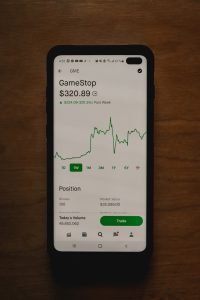Cashback Forex vs. Traditional Trading: Which One Is Right for You?
Forex trading has gained immense popularity in recent years, attracting both seasoned investors and newcomers to the financial markets. With the advancement of technology and the availability of various trading platforms, traders now have more options than ever before. One such option is cashback forex, which offers traders the opportunity to earn a percentage of their trading costs back. But how does cashback forex compare to traditional trading, and which one is right for you? Let’s explore the differences and benefits of each.
Traditional trading refers to the standard approach of buying and selling financial instruments, such as currencies, stocks, commodities, or indices, through a broker or a financial institution. Traders execute trades based on their analysis and market predictions, aiming to make profits from the price fluctuations of their chosen assets. In traditional trading, traders typically pay a spread or commission to the broker for each trade they execute.
On the other hand, cashback forex is a relatively new concept that has gained popularity among traders. With cashback forex, brokers offer traders a percentage of their trading costs back as a rebate. This means that for every trade executed, traders receive a certain percentage of the spread or commission they paid back into their trading account. This rebate can be a fixed amount or a percentage of the trading cost, depending on the broker’s terms and conditions.
So, how do you decide which approach is right for you? Let’s consider several factors that can help you make an informed decision.
1. Cost-effectiveness: One of the main advantages of cashback forex is its cost-effectiveness. By receiving a rebate on your trading costs, you effectively reduce the overall expenses associated with your trades. This can be particularly beneficial for high-volume traders or those who execute frequent trades. Traditional trading, on the other hand, requires traders to pay the full spread or commission for each trade, which can add up over time.
2. Risk management: Both cashback forex and traditional trading involve risks, but they differ in terms of risk management. In traditional trading, traders have full control over their positions and risk management strategies. They can set stop-loss orders, take-profit levels, and adjust their position sizes accordingly. Cashback forex, on the other hand, may limit the amount of rebate you receive based on your trading activity. Some brokers may require a minimum trading volume or impose other conditions to qualify for cashback. Therefore, if you prefer more control over your risk management, traditional trading may be a better fit.
3. Trading style and strategy: Your trading style and strategy can also influence your choice between cashback forex and traditional trading. If you are a short-term trader who relies on quick trades and scalping techniques, cashback forex can be advantageous. The rebate you receive can offset some of the costs associated with frequent trades. On the other hand, if you are a long-term investor who holds positions for weeks or months, traditional trading may be more suitable, as the focus is more on the overall performance of your investments rather than immediate rebates.
4. Broker selection: The choice between cashback forex and traditional trading may also depend on the brokers available to you. Cashback forex is offered by specific brokers who have partnered with rebate providers. Therefore, if you have a preferred broker that does not offer cashback options, you may have to consider traditional trading. It’s important to research and compare different brokers, considering their reputation, trading conditions, and additional services they offer.
In conclusion, both cashback forex and traditional trading have their own merits and drawbacks. The choice between the two depends on your trading goals, risk tolerance, and preferences. If you are a high-volume trader looking for cost-effective options, cashback forex can be an attractive choice. However, if you prefer more control over your risk management and have a long-term investment strategy, traditional trading may suit you better. Ultimately, it’s crucial to thoroughly understand the differences between the two approaches and choose the one that aligns with your trading style and goals.






